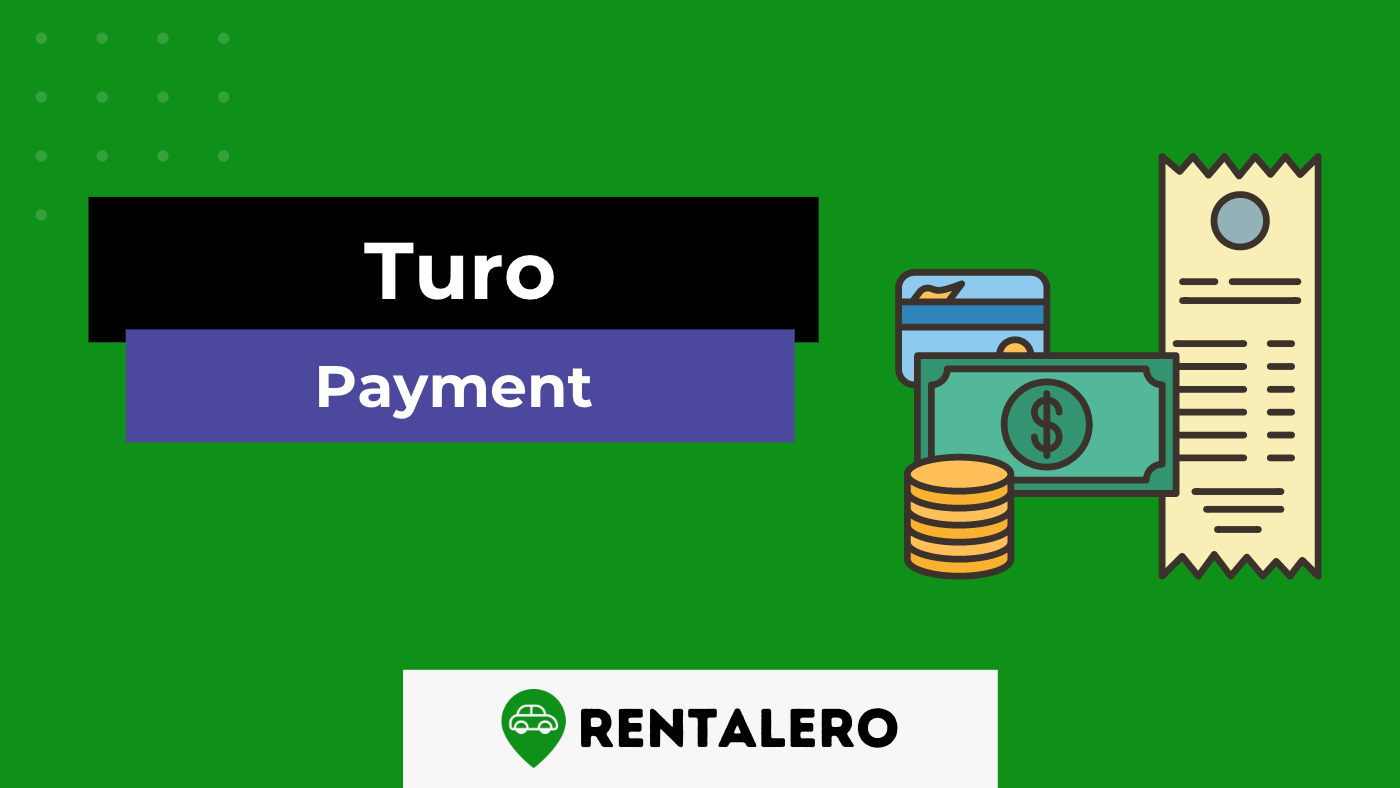As a user-friendly car rental platform, Turo has simplified the process of renting and hosting vehicles.
But how exactly does the payment system work on Turo?
This article will provide an in-depth guide to Turo’s payment process, covering both the renter’s and the host’s perspectives.
We’ll discuss how and when payments are made, the fees involved, and the steps to ensure smooth transactions between parties.
Advertising links are marked with *. We receive a small commission on sales, nothing changes for you.
Key Takeaways
- Depending on their location and preference, Turo pays hosts through Stripe or PayPal, with payments initiated three hours after the trip ends.
- Guests can pay for their Turo rentals using major credit cards and debit cards with a Visa or Mastercard logo, but prepaid cards, cash, and checks are not accepted.
- Hosts can expect to receive their earnings within three to five business days after initiating the payment.
- In case of payment issues, guests should verify their payment details, ensure sufficient funds, and contact their bank or Turo support for assistance.
- Users can rely on Turo’s support team to mediate and resolve payment disputes based on the platform’s policies and guidelines.
Payment Methods for Hosts
Regarding receiving payments for renting out their vehicles on Turo, hosts have two primary options: Stripe and PayPal.
Both of these platforms are widely recognized and trusted for processing online transactions.
They offer a secure and efficient way for hosts to collect their earnings from Turo rentals.
Stripe is a popular payment gateway that allows businesses and individuals to accept online payments. It’s easy to set up and integrate with Turo, making it a convenient choice for many hosts.
On the other hand, an online payment system enables users to send and receive money electronically.
It’s a well-known platform with a strong reputation for security and reliability.
Payment Timeline for Hosts
Turo hosts can expect their first payment to be submitted after their first completed trip.
This initial payment typically takes longer than subsequent payments, as Turo needs to verify the host’s account and ensure all the required information is in place.
After the first trip, the payment is submitted after three business days. This waiting period allows Turo to perform necessary checks and safeguards to ensure a smooth and secure payment process for hosts and guests.
During this time, hosts should ensure their payment information is up-to-date and accurate to avoid delays in receiving their earnings.
If there are any discrepancies or issues with the payment information, Turo may contact the host to resolve the matter before releasing the payment.
Therefore, hosts can minimize the risk of payment delays by ensuring their payment details are correct and complete and enjoy a seamless experience with Turo.
Frequency of payouts and the three-hour window
After the initial payment, Turo’s payment timeline becomes more regular and predictable for hosts. Turo initiates payment three hours after the trip ends, providing a reliable and consistent payout schedule for hosts to anticipate.
This three-hour window allows for any last-minute adjustments, such as additional charges for extra mileage or late returns, to be accounted for in the final payment amount.
Turo issues no more than one payout per day, ensuring that hosts receive their earnings in a timely and organized manner.
The time it takes for the funds to reach the host’s account may vary depending on the chosen payment method (Stripe or PayPal) and the host’s location.
Nevertheless, the overall payout process is designed to be as efficient and straightforward as possible, allowing hosts to focus on providing excellent service to their guests and growing their Turo business.
Payment Processing for Guests
Turo’s payment processing for guests is designed to ensure a secure and seamless experience when booking a vehicle through the platform.
When a user requests to book a trip, Turo sends the guest’s card information to their bank to request payment.
This process verifies that the guest has sufficient funds available on their card to cover the cost of the trip as well as any additional fees or charges that may apply.
The payment authorization process occurs as soon as the guest submits their booking request. It helps protect both the host and the guest from potential payment issues or disputes.
By promptly requesting payment from the guest’s bank, Turo minimizes the risk of payment delays or cancellations, ensuring a smooth transaction for all parties involved.
To ensure a successful payment process, guests should:
- Make sure to use a payment method that Turo accepts and has enough funds available.
- Ensure their card information is accurate and current to avoid payment processing delays or issues.
- Be prepared for potential additional charges, such as late return fees, extra mileage fees, or cleaning fees, which may affect the total cost of the trip.
Payment methods accepted by Turo
Turo accepts various payment methods to accommodate the diverse needs of its users. By offering multiple payment options, Turo aims to provide a convenient and flexible booking experience for guests from different regions and with varying financial preferences.
The accepted payment methods include:
Credit and debit cards:
Turo accepts major credit and debit cards, such as Visa, Mastercard, American Express, and Discover. These payment methods are widely accepted and provide a secure and efficient way for guests to pay for their trip.
Apple Pay and Google Pay:
Turo also supports mobile payment options like Apple Pay and Google Pay. These digital wallet services offer added convenience and security, allowing guests to pay using mobile devices.
Prepaid cards:
In some cases, Turo may accept prepaid cards as a valid payment method. However, guests should verify whether Turo accepts their specific prepaid card before attempting to book a trip.
Turo credits:
Guests may also be able to use Turo credits toward their trip costs.
Turo credits can be earned through promotions, referrals, or as compensation for trip-related issues, and they can be applied to future bookings as a convenient and flexible payment method.
It is important to note that Turo does not accept cash, checks, or money orders as payment methods. All payments must be processed through the Turo platform to ensure a secure and standardized transaction process for hosts and guests.
Conclusion
Understanding how Turo’s payment system works is essential for hosts and guests to ensure a seamless experience on the platform.
Users can better navigate the platform and make informed decisions by familiarizing themselves with the various payment methods, processing timelines, and potential issues.
Additionally, knowing the resources and support available through Turo can help users resolve any payment-related disputes or concerns. Ultimately, staying informed about Turo’s payment processes is crucial for maximizing the benefits of the car-sharing platform.
Frequently Asked Questions
How does Turo pay hosts?
Turo pays hosts through Stripe or PayPal, depending on their location and preference. Payments are initiated three hours after the trip ends, and hosts receive the payment within three to five business days.
What payment methods are accepted by Turo for guests?
Turo accepts major credit cards, including Visa, Mastercard, American Express, and Discover. Debit cards with a Visa or Mastercard logo are also accepted. However, Turo does not accept prepaid cards, cash, or checks.
How long does it take for hosts to receive their earnings from Turo?
After the first trip, the payment is submitted after three business days.
Following that, Turo initiates payments three hours after the trip ends, and hosts can expect to receive their earnings within three to five business days, depending on their bank’s processing times.
What should I do if my payment is declined on Turo?
If your payment is declined, verify your payment details, ensure sufficient funds are available in your account, and contact your bank to lift any restrictions. If the issue persists, consider using an alternative payment method or contact Turo support for assistance.
How can I resolve a payment dispute with Turo?
Contact Turo’s support team if you cannot resolve a payment dispute directly with the host or guest. They will investigate the situation and help mediate the dispute based on the platform’s policies and guidelines. In cases where a formal dispute resolution process is required, both parties can submit evidence to support their claims, and Turo will make a final decision.

Nzoputa has been writing for Rentalero since day one and is one of our most experienced members when it comes to the rental industry. For her, nothing beats Uber!
Advertising links are marked with *. We receive a small commission on sales, nothing changes for you.

